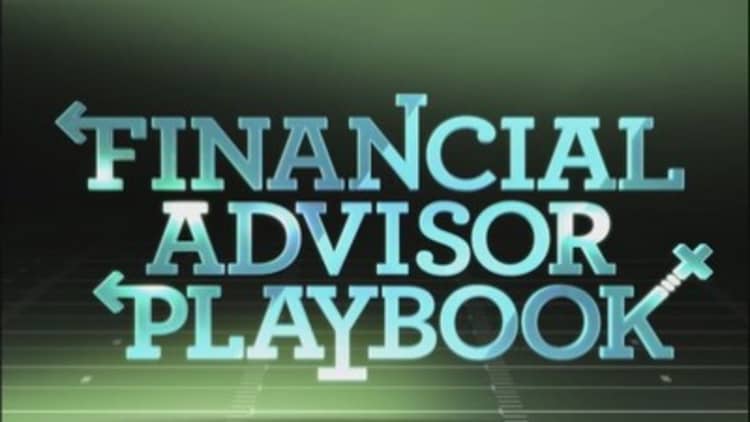
December is a time when many people check in on their 401(k) investments and make adjustments. If you have recently reviewed the investments your 401(k) plan includes, and tweaked your asset allocation as you saw fit, good for you. The $4.4 trillion currently invested in 401(k)s represents a significant portion of most Americans' retirement savings.
There is just one catch: simply holding several different funds doesn't make you diversified, and may leave you with more risk in your portfolio than you expect. And if your 401(k) plan has a lot of choices, it may be hard to tell if you have hit that snag.
The average 401(k) plan now offers 25 investment choices, according to newly released research by the Investment Company Institute and BrightScope. Some financial experts think that is a few too many.
"Sometimes, if you give [employees] too many choices, they wind up buying a little bit of each of the portfolios, and they end up not really diversifying," said Sean Keating, a financial advisor with Patriot Financial Advisors.
Keating said he has seen clients buy several different equity funds in their 401(k) account, each with a slightly different focus, believing that diversifies away much of their risk.
"You see everyone saying "OK, I've got growth stocks, I've got European stocks, I've got Asian stocks," he said. "They still have equity risk."
Keating said he would rather see 401(k)s offer three to four equity funds, two to three bond funds and perhaps investment options providing exposure to different types of assets, like real estate or commodities. Too many choices can paralyze investors unless they have someone advising them, he said.
Read MoreNever do this with your 401(k)
But Sarah Holden, senior director of retirement and investment research at the Investment Company Institute, contends that the number of investment choices in 401(k) funds makes sense. For one, a number of 401(k) plans now include target-date funds, which hold both stocks and bonds and shift the mix toward more bonds as investors near retirement. If all the target-date funds in a plan are counted as a single fund offering, the average number of fund offerings drops to 20.
Holden also said she believes the mix of fund offerings suggest an appropriate level of choice in each category. The average of 9.5 U.S. stock funds in 401(k)s is appropriate, she said, since that is the largest asset category for many people. In contrast, the average plan offers just three international stock funds and 2.6 U.S. bond funds.
"The plan sponsors are doing a great deal to design their plans to encourage employees to participate," she said, including matching employee contributions and adopting automatic enrollment defaults. (The latest Bank of America Merrill Lynch 401(k) Scorecard, released this fall, found 213 plans offered both auto-enrollment and auto-increase features, a jump of 19 percent from 2013.)
Read MoreFour ways saving for retirement is getting easier
Holden is also pleased with the trend in 401(k) fees, which have been declining for several years, she said. (The Investment Company Institute has been tracking 401(k) fees for several years, but the new research uses a different data set based on 401(k) filings with the Department of Labor.) Investors seem to be opting for funds with lower fees, she said, and more plans are offering index funds, which tend to have extremely low fees.
Other experts, though, caution that even seemingly minor 401(k) fees can add up to major expenses over time.
Jack Bogle, the venerable investor and founder and former head of Vanguard Group, said in a television interview on retirement plans that if a plan had total fees of 2 percent, and the market returned 7 percent, over time the investor would lose two-thirds of the investment return to fees.
"What happens in the fund business is the magic of compound returns is overwhelmed by the tyranny of compounding cost," he said.
Read More
As for the number of choices investors need, Bogle is squarely in the camp that favors simplicity.
"The less choice the better," he said in an interview about retirement, referring to investment options. "Choice is your enemy, because you choose based on one thing: past performance. Past performance does not recur."


